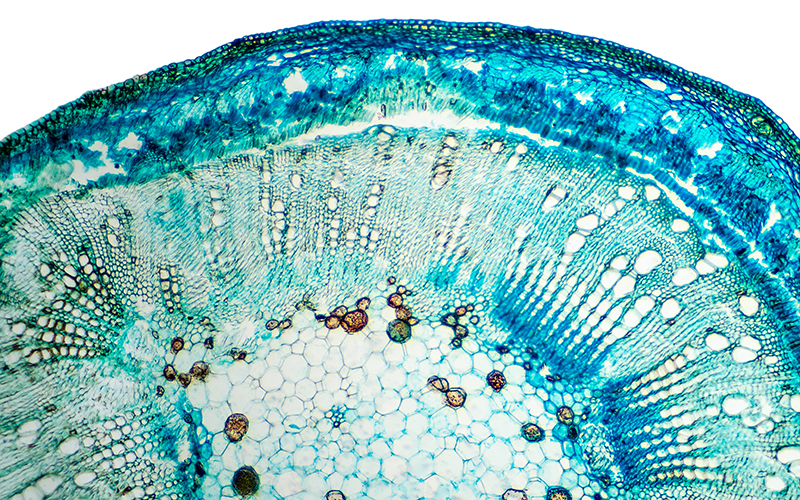UKRI is to provide £13.5 million in funding for various technology missions funds, delivered by Innovate UK.
The 48 projects cover a wide range of sectors and disciplines and involve private companies, academic institutions and partner bodies. For example, they will be:
- Engineering red blood cells to unlock new therapeutic treatments
- Developing new bio-based materials to make paints more environmentally friendly
- Making a sustainable alternative to palm oil
- Engineering animal stem cells to cultivate meat production
- Developing advance wound therapy
- Advancing industrial biotechnology to develop sustainable packaging
The new projects
UNIVERCell: an engineered red blood cell line to unlock a new, universal therapeutic modality
The UNIVERCell: an engineered red blood cell line to unlock a new, universal therapeutic modality project is led by Scarlet Therapeutics.
It will generate vastly improved methodologies for the production of red blood cells that can be engineered to treat many, currently poorly treated, human diseases.
Based in Bristol, the science underpinning the company has previously been funded by:
- UKRI through the Biotechnology and Biological Sciences Research Council (BBSRC) and Innovate UK
- Wellcome Trust
- National Institute for Health and Care Research
- NHS Blood and Transplant (NHSBT)
P.A.I.N.T.S (Production of Alternative, Innovative and Natural-based Technologies for Styrene)
Another example is led by Crown Paints in partnership with Impact Laboratories and the University of Edinburgh.
The project aims to reduce the carbon footprint of the paints and coatings industry. It focuses on using bio-based styrene material in the production of paints and coatings instead of the petrochemically produced equivalent.
Engineering cyanobacteria into bio-solar cell factories for scalable carbon capture utilisation and storage
Addressing the theme of environmental solutions, Cyanocapture Ltd is collaborating with the McCormick Lab at the University of Edinburgh on this project.
It aims to develop a sustainable and cost-effective solution for carbon capture at the point of emission, enabling mass-scale carbon dioxide (CO2) removal through an engineered cyanobacterium that will take CO2 from flue gas.
It will also explore how it can be engineered as a competent microbial chassis for efficient conversion of CO2 to biomass and value-added chemicals that offer not only long-term carbon sequestration, but also additional economic and societal benefits.
Optimisation of extracellular lipid production and downstream processing for a palm oil alternative
The Optimisation of extracellular lipid production and downstream processing for a palm oil alternative project is led by Sun Bear Biofuture and the Biorenewables Development Centre.
It looks to develop an alternative to palm oil, which is ubiquitous in many products from food to fuel. It aims to reduce its environmental impact due to the loss of forests and habitats for species such as the orangutan and sun bear.
It will optimise a naturally oil-producing yeast strain to produce oil from food waste. The work builds on an earlier Fast Start award from Innovate UK, which allowed the team to prove the expression of key enzymes in their yeast strain for the metabolism of starch.
Continuous Oscillating Baffled Reactor-with-biocatalysts-for Accelerated-reactions (COBRA)
The COBRA project is led by Impact Solutions and the University of Edinburgh.
It will develop a novel lab-scale reactor that is 10-times faster than traditional stirred tank reactors and has created a multi-tier framework of baffles containing small pores to facilitate thorough mixing and mass transfer.
The company wants to achieve ‘greener chemistry’ through its techniques. Heterogeneous biocatalysts are immobilised directly onto the patented baffles it has designed. This negates the chronic environmental hazards associated with metal-catalysts and provides reusability, easy separation and reduced costs of downstream processing.
Supporting some of our brightest minds
Science Minister Andrew Griffith said: “Engineering Biology is overhauling the way we tackle the world’s most complex problems – from recycling, where enzymes can now be used to break down plastic to make industry more sustainable, through to bacteria that capture CO2 emissions.
“The £13.5m that we are investing today will support some of our brightest minds to get their ideas out of the lab, and onto the market, delivering benefits across society and the economy.”
Pushing boundaries in many fields
Dr Kedar Pandya, UKRI Technology Missions Fund Senior Responsible Owner and Executive Director of Cross-Council Programmes at UKRI’s Engineering and Physical Sciences Research Council said: “Engineering Biology is one of the critical technologies for the UK’s strength and opportunity identified in the Innovation Strategy. These projects, funded through the Technologies Missions Fund, will enable companies to push boundaries in many fields and develop products and services that will improve our way of life and address some of the serious challenges we face as a society.”
Addressing societal challenges
Dr Amanda Collis, UKRI Technology Mission Director for Engineering Biology and Interim Deputy Executive Chair of BBSRC said: “UKRI is investing £13.5 million to support collaborative R&D projects to accelerate the development and adoption of engineering biology technologies and techniques to address societal challenges. These projects follow on from the announcement of £100m for Engineering Biology Mission Hubs and Awards, also funded through the UKRI Technology Missions Fund.”
Cement global leadership in engineering biology
Gordon Ford, Innovation Lead of Biomedical and Enabling Technologies at Innovate UK said: “The UK Science and Technology Framework identifies Engineering Biology as a critical technology. The UKRI Technology Missions Fund aims to support development of Engineering Biology based solutions to challenges in health, the environment, food systems and clean growth.
“Innovate UK’s Engineering Biology Collaborative R&D competitions have driven industry-led research and brings these solutions closer to the market. It is a pleasure to support cutting-edge, exciting research that will cement the UK’s global leadership in Engineering Biology as we look forward to delivering on the UK’s National Vision for Engineering Biology.”
All the projects are supporting business led research and development that will:
- Lead to new engineering biology products, processes or services
- Help to de-risk the adoption of new engineering biology technologies that offer high market potential
The projects align with the government’s national vision for engineering biology and follow on from the announcement of £100 million engineering biology mission hubs and awards, which are also funded through the UKRI Technology Missions Fund.




